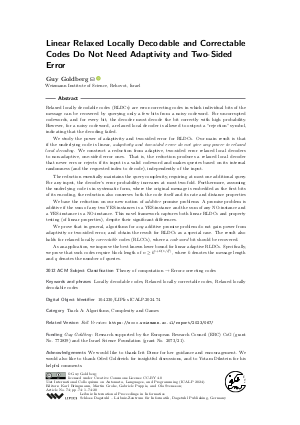LIPIcs.ICALP.2024.74.pdf
- Filesize: 0.75 MB
- 20 pages

 Creative Commons Attribution 4.0 International license
Creative Commons Attribution 4.0 International license





















Feedback for Dagstuhl Publishing